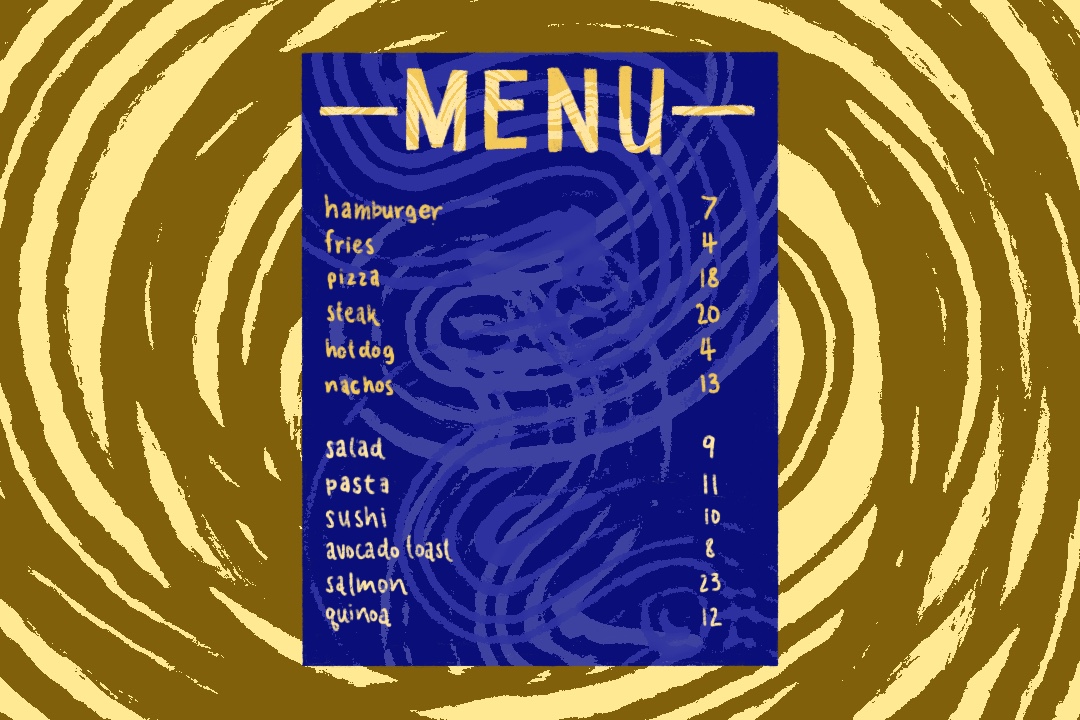Throughout history, at the precipice of the human mind, we’ve come to consider the burden of existence, the meaning of life, our purpose — and, recently, surviving a full course load online. Besides ‘How do I get off TikTok and finish this paper?’ mankind’s ultimate, most instinctive question has always been what we will eat next.
Some of us grew up familiar with the notion that proper nutrition and healthy foods directly benefit our physical well-being in many ways. When we think of this association, we typically consider weight gain or loss and its contribution to or prevention of diseases like heart disease, diabetes, and even cancers. However, something that is not always a topic of discussion is the impact of diet on our mental health and how different foods affect who we are on a daily basis.
In addition to intervention strategies that are already in use, researchers have been looking for more ways to reduce the impact of mental illnesses like depression and anxiety. According to the World Health Organization (WHO), depression could be “the largest contributor to disease burden” by the next decade. In fact, the WHO reported depression as the leading cause of illness and disability worldwide in 2017.
Studying the impact of nutrition on mental health has caused researchers to look specifically at the role of diet in the prevention and treatment of mental illness.
How does diet affect mental illness?
In 2017, a research article reviewing 21 studies from 10 countries assessed the link between different dietary patterns and risks of depression.
The review found that a diet characterized by “high intakes of fruit, vegetables, whole grain, fish, olive oil, low-fat dairy and antioxidants and low intakes of animal foods” is associated with a decreased risk of depression. On the other hand, a ‘western-style diet’ — characterized by “high consumption of red and/or processed meat, refined grains, sweets, high-fat dairy products, butter, potatoes and high-fat gravy, and low intakes of fruits and vegetables” — was found to be associated with an increased risk of depression.
Additionally, a recent study in 2019 found that a dietary pattern consisting of saturated fat and added sugars was associated with higher levels of anxiety in adults aged 50 years and above. However, such findings regarding mental health are not exclusive to adults.
Another 2019 research article reviewing 56 studies found a link between nutrition and depression in adolescents. The authors highlighted that foods such as olive oil, fish, nuts, legumes, dairy products, fruits, and vegetables are “inversely associated with the risk of depression and might also improve symptoms.”
Can healthy nutrition help with treatment of mental illness?
The SMILES trial, a randomized controlled trial (RCT) study published in 2017, assessed the role of diet in treating major depression. The study spanned 12 weeks with 67 individuals who had moderate or severe depression. The authors note that it is the first RCT “to explicitly seek to answer the question: If I improve my diet, will my mental health improve?”
Individuals were either placed in the intervention group or the control group. Those in the intervention group received nutritional counselling by a clinical dietitian, whereas individuals in the control group received social support, in addition to any preexisting treatment.
Dietary support for the intervention group emphasized higher consumption of whole grains, vegetables, fruits, legumes, as well as other previously identified ‘healthy’ foods like fish and olive oil, with moderate levels of meat and reduced intake of processed foods, fast food, and sugary drinks.
By the end of the trial, the researchers found those who received dietary support had “significantly greater improvements” in symptoms of depression. In fact, 32 per cent of those in the intervention group saw a reduction in their symptoms, compared to the eight per cent in the control group.
The results of this study certainly provide a gateway to the implementation — or at least consideration — of therapies involving diet. With that, however, there remains great room for solidifying these findings. As the researchers put it, replication, along with larger and long-term studies are necessary in this new field of ‘nutritional psychiatry research.’
A review article analyzing 16 RTCs found dietary interventions helpful in significantly reducing depressive symptoms, but no effects were observed for symptoms of anxiety.
The takeaway
Overall, observational studies have identified a link between food intake and mental health. While there is no conclusive explanation as to exactly how nutrition plays a role, researchers have noted some possibilities. For one thing, the role of inflammation in depression has been well established, and dietary strategies to reduce mental health symptoms include foods like fruits and vegetables, which possess anti-inflammatory properties.
Another explanation could be the link between gut health and brain health. Ongoing research has established a strong relationship between a healthy gut and healthy brain function. In fact, a recent review article of 26 studies, published in 2020, highlights the potential association between maintaining a healthy, diverse microbiome through proper nutrition — or otherwise supporting the good bacteria in our gut — and decreasing depression and anxiety symptoms.
Ultimately, an important aspect of tackling therapeutic and preventative strategies for mental health concerns with diet is keeping in mind the many contributing factors at play, like trauma, genetics, and even socioeconomic factors such as having access to healthy foods in the first place.
While there is a lot more research to be done, science currently gives us this food for thought: no matter how big or small the influence, our dietary choices matter. Food may be a small piece of the complex puzzle that is mental health, but its role still gives us something to chew on.


